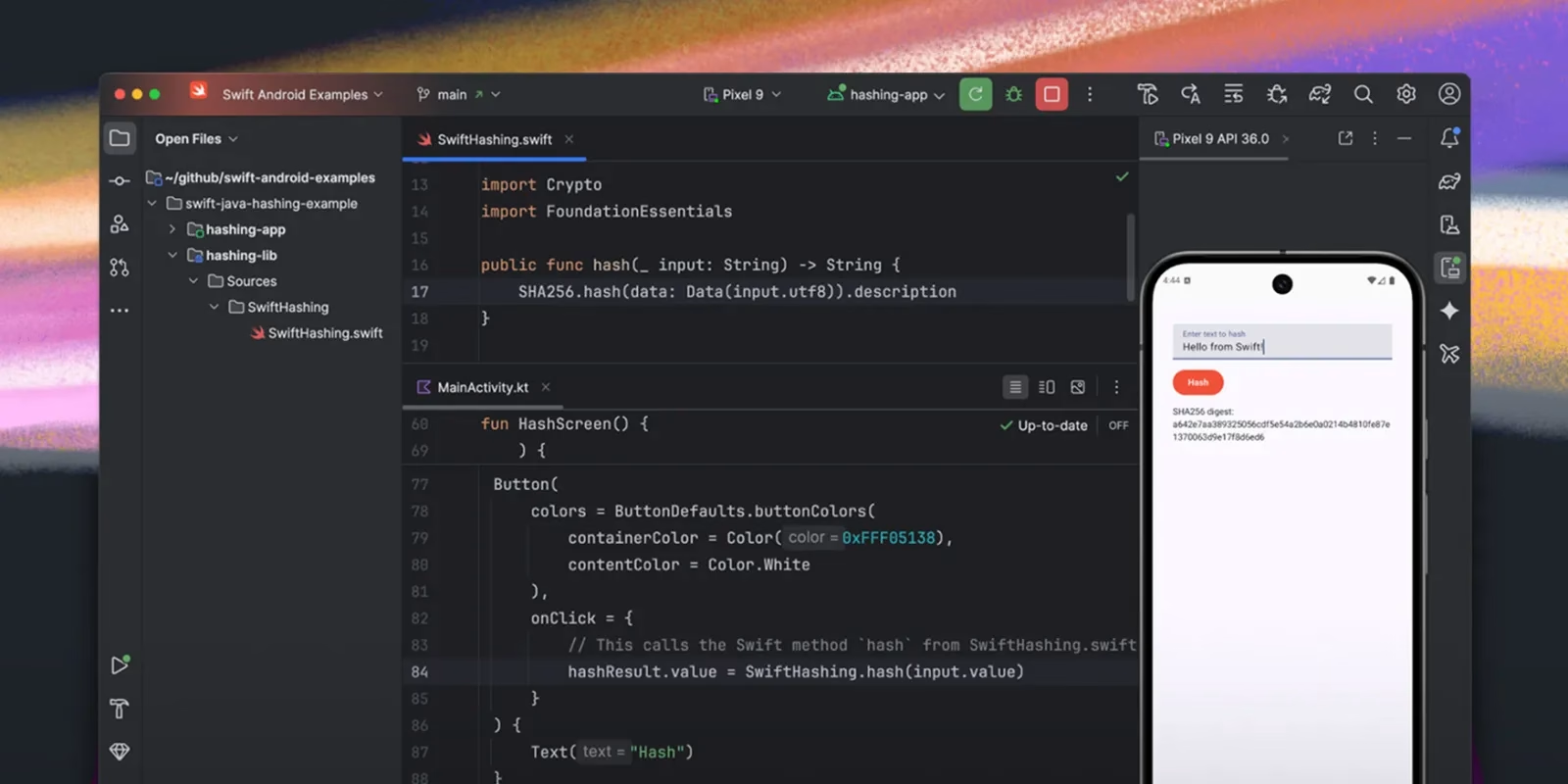Swift SDK for Android Officially Released: A Game-Changer for Cross-Platform Development
In a development that's sending ripples across the mobile app industry, Apple has officially launched the Swift SDK for Android. This wasn't some quiet beta update; the SDK went live on October 24, 2025, at 10:00 AM PDT, effectively opening the door for developers to write native Android applications using Apple's popular Swift programming language. For years, the idea of Swift deeply integrated into the Android ecosystem felt like a distant dream. Now? It's reality.
The significance of this move is hard to overstate. We're talking about Apple taking its powerful, safe, and performant language beyond its traditional walled garden. Susan Prescott, Apple VP of Developer Tools, framed it as a "step toward a more unified mobile development landscape," emphasizing that it's meant to complement, not compete with, Kotlin. Many are calling it a monumental shift. And frankly, they're not wrong. This isn't just about giving iOS developers a new toy; it's about fundamentally changing how cross-platform apps can be built, potentially reducing costs by 25-30% for teams needing to target both major mobile OSes.
What the SDK Brings to the Android Table
So, what exactly does this shiny new SDK deliver? A lot, actually. At its core, it enables native SwiftUI integration with Android's Jetpack Compose. That's a pretty big deal. Imagine writing your UI once, in Swift, and having it translate efficiently across both platforms. Early benchmarks suggest up to 40% less code than traditional XML layouts, which means faster development cycles and fewer headaches.
async/await for Android coroutines, ensuring safer and more efficient concurrency management. And get this: there's even a beta feature for AI-assisted code conversion from Kotlin to Swift, boasting around 85% accuracy. That's not perfect, but it sure is an intriguing starting point.Performance-wise, the numbers are promising. Apple claims a 30% reduction in compilation time compared to Kotlin equivalents, and up to 4x faster runtime performance for UI-heavy apps via those SwiftUI-to-Jetpack bridges. Android Authority independently verified some tests, noting a 15% reduction in battery drain for Swift-built apps compared to their Kotlin counterparts. Error handling also benefits, with Swift's type safety making it twice as robust. This SDK supports Android 10 (API level 29) and above, requires Swift 6.0+, and is available for ARM64 and x86 architectures. Oh, and it's free, released under an Apache 2.0 license, making it incredibly accessible.
Industry and Developer Echoes
The immediate reactions from the development community have been largely enthusiastic. On Reddit's r/swift, threads are buzzing with praise. One highly upvoted post declared it "a game-changer for iOS devs going cross-platform—finally no more Kotlin headaches." Indeed. Many developers, long tethered to specific ecosystems, are seeing this as a liberation. Stack Overflow has already seen a surge in questions, indicating strong initial engagement.
Of course, no major tech release goes without its skeptics. Some Android purists on X (formerly Twitter) expressed concerns about "Apple-izing" Android development, and there are legitimate questions about Google's long-term commitment to maintaining the necessary bridges. We haven't seen an official statement from Google yet, beyond a spokesperson welcoming "innovations that enhance the Android ecosystem" and confirming they are "exploring integration opportunities." That's measured, isn't it?
Meanwhile, industry experts are weighing in. Tech analyst Ming-Chi Kuo speculates this could boost Apple's developer ecosystem by 20% within a year. The Verge's review rated the SDK an 8/10, applauding its impressive performance but noting the tooling still needs some maturation. It makes sense. It's brand new; some rough edges are inevitable, but the foundation is solid. In the first 24 hours, GitHub reported over 10,000 downloads, outpacing the initial uptake of Kotlin Multiplatform. That's saying something, it really is.
Broader Implications and Future Outlook
This SDK's release also aligns with broader regulatory pressures, particularly within the EU, addressing Digital Markets Act requirements for interoperability. Apple's stated compliance makes a lot of sense when you consider the timing. This isn't just a technical achievement; it's a strategic one.
Compared to previous, more experimental Swift initiatives on other platforms, this official SDK is a complete package. It offers a clear, sanctioned path to leverage Swift's strengths on Android, with direct Xcode integration, a critical differentiator from solutions like Kotlin Multiplatform which primarily focus on shared logic. It's an undeniable step toward more cohesive development, promising to shrink the gap between the two major mobile platforms. While risks like fragmentation exist if adoption isn't widespread, all signs point to a significant increase in hybrid app development by early 2026. This is big, and it feels like just the beginning.
